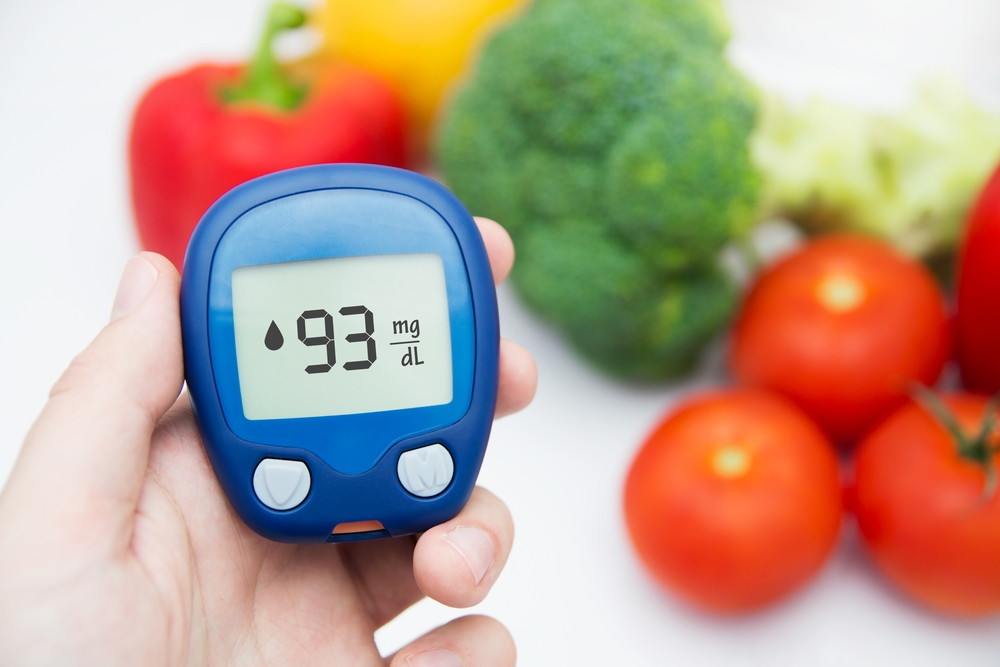
UP TO 40% OFF SITEWIDE






41 percent of Metformin Takers Are Deficient in This Vitamin


Table of Contents
- 41 percent of Metformin Takers Are Deficient in This Vitamin
- Understanding Metformin and Vitamin B12
- Complications of Vitamin B12 Deficiency
- Some other Symptoms of Vitamin B12 Deficiency
- High-Quality Vitamin B12 Solutions
- Low-Carb Foods Rich in Vitamin B12
- Why Food Alone Might Not Keep Your B12 Levels Happy
- How Much Daily and Weekly Dosing of B12
- What Happens If B12 Levels Are Too High
- Conclusion
41 percent of Metformin Takers Are Deficient in This Vitamin
Welcome back SugarMd community, to another episode of "SugarMD," dedicated to unraveling the intricacies of medical knowledge. I'm Dr. Ergin a seasoned endocrinologist, here to take you on a journey through a topic that hits close to home for millions managing type 2 diabetes—especially for those navigating the complexities of metformin. Buckle up, because today we are diving deep into the shadows of Vitamin B12 deficiency, a condition that can lead to a storm of serious complications including severe neuropathy and anemia.
Understanding Metformin and Vitamin B12
Let’s start with the foundation—metformin. It's a medication that has become a beacon of hope for those battling type 2 diabetes, renowned for its effectiveness and affordability. But while it is well-tolerated by many, the tale is not so simple for everyone. One of the darker aspects of metformin use is its less-known impact on Vitamin B12 levels —a fact that often lurks under the radar of patients and healthcare providers alike.
Let’s dig into the numbers, shall we? High doses of metformin—especially those exceeding 1500 mg per day—dramatically elevate the risk of Vitamin B12 deficiency. Studies reveal a staggering statistic: up to 41% of type 2 diabetes patients on metformin may find themselves lacking this vital nutrient. But why does this happen? The villain in this story is metformin itself, which hinders the intestinal absorption of Vitamin B12. It also complicates matters by encouraging certain bacteria to scavenge Vitamin B12 from our bodies, further diminishing our access to this crucial vitamin.
Complications of Vitamin B12 Deficiency
Now, you may be asking, "Why should Ibe concerned about Vitamin B12 deficiency?" That’s an excellent question! Vitamin B12 is not just another vitamin; it is essential for producing red blood cells and maintaining healthy nerve function. A deficiency can unleash a cascade of serious complications—think anemia and neuropathy. Imagine living with the unsettling sensations of numbness and tingling, primarily in your hands and feet—these are the realities for those grappling with neuropathy.
Picture this: Vitamin B12 acts as a coenzyme, facilitating the synthesis of myelin, the protective sheath that encases our nerves. When we face a deficiency, this critical process is disrupted, leading to demyelination—a condition that can severely impair sensory nerve conduction and manifest as a demyelinating disorder. Increased levels of homocysteine, fueled by Vitamin B12 deficiency, can also wreak havoc, contributing to neurotoxic effects and neuropathy. Disturbingly, studies indicate that those with Vitamin B12 deficiency experience a significant increase in somatosensory central conduction time—a technical way of saying that their nerve signals are slowed down, adding yet another layer of complexity to their health situation.
Some other Symptoms of Vitamin B12 Deficiency
Understanding the symptoms of Vitamin B12 deficiency is crucial for early detection and intervention. Psychological problems can manifest as depression, mood swings, irritability, and in severe cases, paranoia and delusions. These mental health challenges often stem from the vitamin's role in brain health and neurochemical function.
On the physical side, individuals may experience a range of alarming symptoms. Fatigue or weakness frequently occurs, along with pale skin which may indicate anemia. A painful, smooth, inflamed tongue—known as glossitis—can also be a telltale sign. Gastrointestinal issues may arise, including constipation, diarrhea, or a pronounced loss of appetite. In some cases, bluish or gray-brown nails may develop, serving as another physical indicator of deficiency. Furthermore, more serious symptoms like heart palpitations and shortness of breath can emerge, underscoring the importance of monitoring Vitamin B12 levels, particularly for those on metformin.
High-Quality Vitamin B12 Solutions
For those seeking to mitigate the risk of Vitamin B12 deficiency while using metformin, I highly recommend exploring the high-quality liquid form of Vitamin B12 available at SugarMDs.com. This liquid formulation is designed for optimal absorption, ensuring that you receive the full benefits of this vital nutrient. Additionally, for those looking for extra benefits on top of metformin and maybe consider cutting back on the metformin dose, we also offer berberine and dihydroberberine. These supplements can serve as an effective add-on to your metformin regimen or even a replacement for metformin for individuals who cannot tolerate the medication. With these options, you can take proactive steps toward managing your diabetes healthily and effectively.
Low-Carb Foods Rich in Vitamin B12
If you're managing diabetes and keeping an eye on your Vitamin B12 levels, adding low-carb foods packed with this vital nutrient can be a smart move. Here are some top choices that not only fit the bill but also support your health:
1. Fish: Fatty fish like salmon, sardines, and trout are fantastic sources of B12 and come with heart-healthy omega-3 fatty acids that help reduce inflammation.
2. Meat: Grass-fed beef and lamb are loaded with Vitamin B12 and essential proteins. They’re versatile enough to be enjoyed in a variety of dishes.
3. Eggs: Eggs are low in carbs and deliver a good dose of Vitamin B12, especially in the yolk. They make for a nutritious and convenient breakfast or snack.
4. Dairy Products: Full-fat dairy options, such as cheese, yogurt, and milk, are rich in B12. Choosing low-carb varieties helps you manage your carb intake while still getting those essential nutrients.
Why Food Alone Might Not Keep Your B12 Levels Happy
While it’s super important to enjoy foods rich in Vitamin B12, sometimes that’s just not enough to keep our B12 levels where they need to be—especially for those taking certain medications like metformin or dealing with specific health issues. One big reason is that our bodies don’t always absorb B12 from food as well as we’d like. For some folks, especially our lovely seniors or those with tummy troubles, things like lower stomach acidity or reduced intrinsic factor can make it tricky to soak up that B12 goodness.
Plus, life can throw extra demands our way! Stress, pregnancy, or special dietary choices can boost our need for B12, making it tough to get enough from food alone. And let’s not forget about cooking! Sometimes, cooking methods can zap the B12 right out of our meals if they’re exposed to heat or air for too long.
So, while we should definitely include B12-rich foods in our diets, it’s also a good idea to keep an eye on our levels and think about supplements as a little insurance policy to keep our B12 levels smiling!
How Much Daily and Weekly Dosing of B12
SugarMD B12 comes in a potent 5000 mcg liquid drop, making it an excellent option for those looking to maintain optimal Vitamin B12 levels with ease. Since the recommended daily intake for B12 typically ranges from 500 to 1000 mcg, a single weekly dose of 5000 mcg provides ample coverage for your needs over the entire week. This approach simplifies your supplementation routine, allowing you to effortlessly meet your Vitamin B12 requirements without the hassle of daily dosing. Embracing this once-weekly regimen not only enhances convenience but also ensures you receive a substantial dose of this essential nutrient, promoting better overall health and wellbeing.
The best time to take Vitamin B12 is in the morning, as it can help boost energy levels and support overall metabolic function throughout the day. Taking it with a meal can also enhance absorption, making sure your body gets the most benefit from this essential nutrient.
What Happens If B12 Levels Are Too High
Vitamin B12 is essential for your health, but it's important to know that too much of it can cause issues. I do not support b12 injections because they can easily cause toxicity. Hypercobalaminemia is a condition marked by high B12 levels in the blood, often resulting from excessive supplementation rather than food sources, since your body usually gets rid of excess vitamin B12 through urine. Symptoms of high B12 levels may include anxiety, restlessness, and skin problems like rashes or itchy, red skin.
Conclusion
In closing, while metformin stands as a powerful ally in the fight against type 2 diabetes, we must remain vigilant about its potential impact on Vitamin B12 levels. If you’re currently on metformin, particularly at higher doses, I urge you to have a conversation with your healthcare provider about the possibility of Vitamin B12 supplementation.
Thank you for joining me today on "SugarMD." Visit SugarMds.com and If you found this enlightening, please share it far and wide with your friends and family. And don’t forget to subscribe to our podcast for in-depth discussions on an array of health topics that matter. For personalized advice and more information, feel free to book a consultation through our website. Until next time, stay healthy, stay informed, and let’s navigate this journey together!
Products











